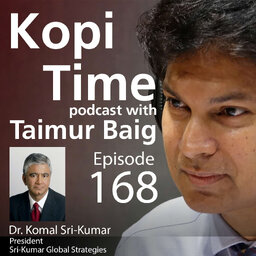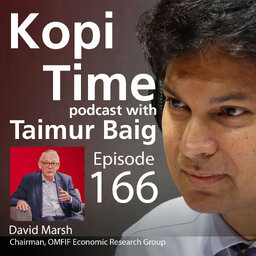Kopi Time E120 - Henny Sender on China, Hong Kong, and India
Henny Sender, after several decades of writing on international finance for the Finance Times and Wall Street Journal, presently runs Apsara Advisory, a New York-based consultancy. She joins Kopi Time to talk about her sense of the challenges facing the Chinese economy, especially the weakness in consumer sentiment. While recognising the wisdom behind self-reliance and trade openness, Henny flags several areas of concern, including property and stock market woes, as well as regulatory overhang. On Hong Kong, where she has lived for many years, Henny is blunt in her assessment. She sees substantial room available for the public sector to address affordable housing, an issue that is at the heart of the city’s competitiveness. On India, Henny sees a welcome rise in aspiration and optimism. She would however like to see more efforts to scale up manufacturing, address climate risks, and reduce protectionism for local industries.
 DBS Economics & Strategy
DBS Economics & Strategy


